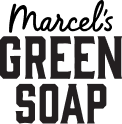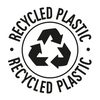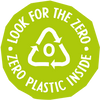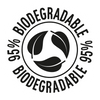The plastic soup: you've probably heard of it. A large, floating mass of plastic waste that floats in the North Pacific Ocean. And although the problem has been known for a long time, an amount of plastic still ends up in the sea every hour that would fill 11 Olympic swimming pools. This has to change. That's why we are working together with World Animal Protection to combat the plastic soup. And you can join in! In this article you can read how.
Plastic is everywhere
Unfortunately, the plastic problem is not limited to the plastic soup: many other areas also struggle with large concentrations of plastic waste. Take a walk along the beach anywhere in the world and you will see how big the problem is. You will find washed-up plastic packaging everywhere: from bottles and other disposable items to lost and dumped fishing nets and lines.
In recent years, the amount of plastic waste has only increased. And it is very likely that the plastic that is there now will be around for centuries. Plastic breaks down very slowly. Fishing gear is designed to be strong and durable and does not break down quickly in the sea. Lost nets can continue to 'ghost fish' for up to 600 years and are extremely dangerous to marine animals. According to the World Wildlife Fund, 11 million tons of plastic flows into the oceans every year.
Threat to marine animals such as the whale
With all that plastic and fishing gear left behind, we are doing a lot of damage to the rich marine life. Marine animals such as whales can starve to death after ingesting plastic. The plastic makes them feel full, after which they eat less, take in less energy and become weak or even die. For example, the news that a dead whale washed up with more than 40 kilos of plastic bags in its stomach shocked the world. According to the World Wildlife Fund, 56% of whale and dolphin species have ingested plastic.
“ Every year, hundreds of thousands of whales, seals, turtles and birds are entangled, injured or maimed by plastic floating in our oceans.” - World Animal Protection
In addition to the animal suffering caused by plastic waste, we also affect ourselves. Whales are an important factor in protecting our climate. Whale poop is food for plankton, and plankton converts enormous amounts of CO2 into oxygen. Whales also store carbon in their bodies, which disappears into the ocean floor when they die.
What can you do?
It is expected that plastic production will only increase, making the plastic problem in the oceans and thus the threat to marine animals even greater. How can we put an end to this?
The answer is simpler than you might think: produce and use less plastic, and deal with it more responsibly. Companies and governments need to achieve this with policy plans and laws, but you too can combat waste at sea. Every little bit helps. For example, use a reusable water bottle, coffee cup and bag instead of disposable plastic for single use. Do your shopping packaging-free at the market, via online supermarket Pieter Pot or the new packaging-free concept of Albert Heijn. Participate in, or organize yourself, a clean-up action on the beach. And switch to plastic-free products such as a shampoo bar, body bar and deodorant stick as much as possible. Is this still a step too far for you? Then at least make sure that you buy products in 100% recycled packaging.









